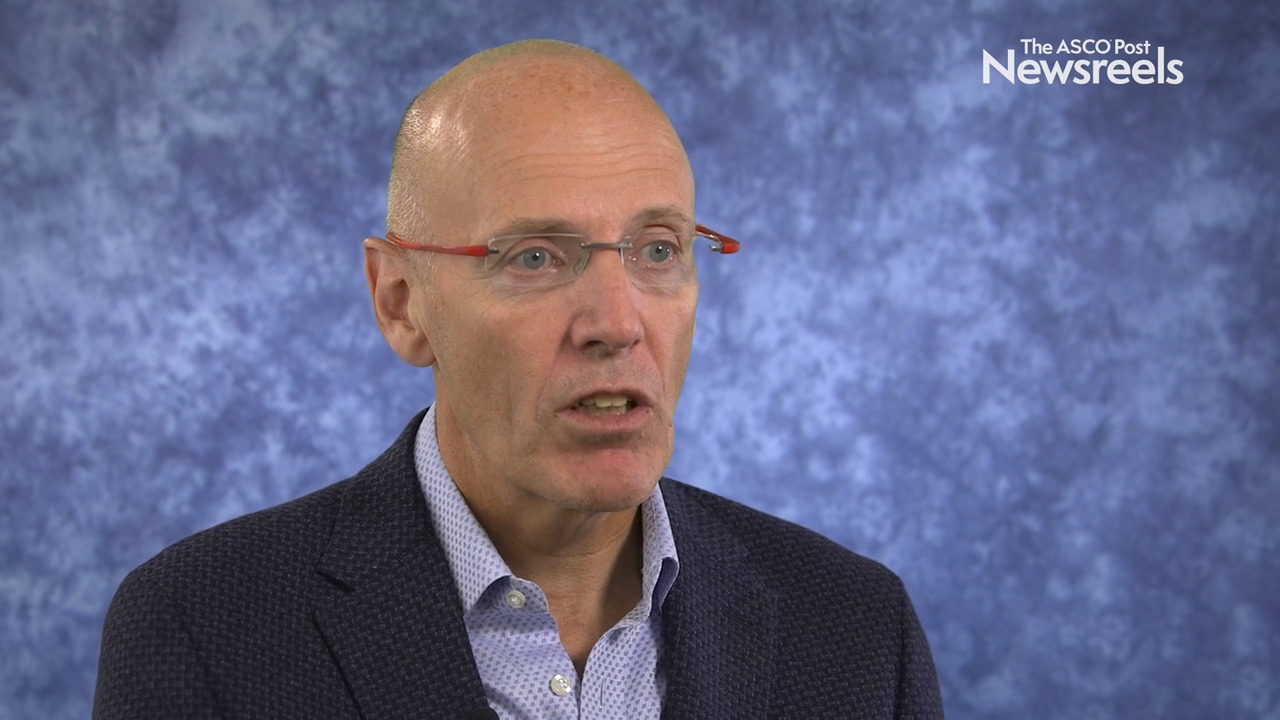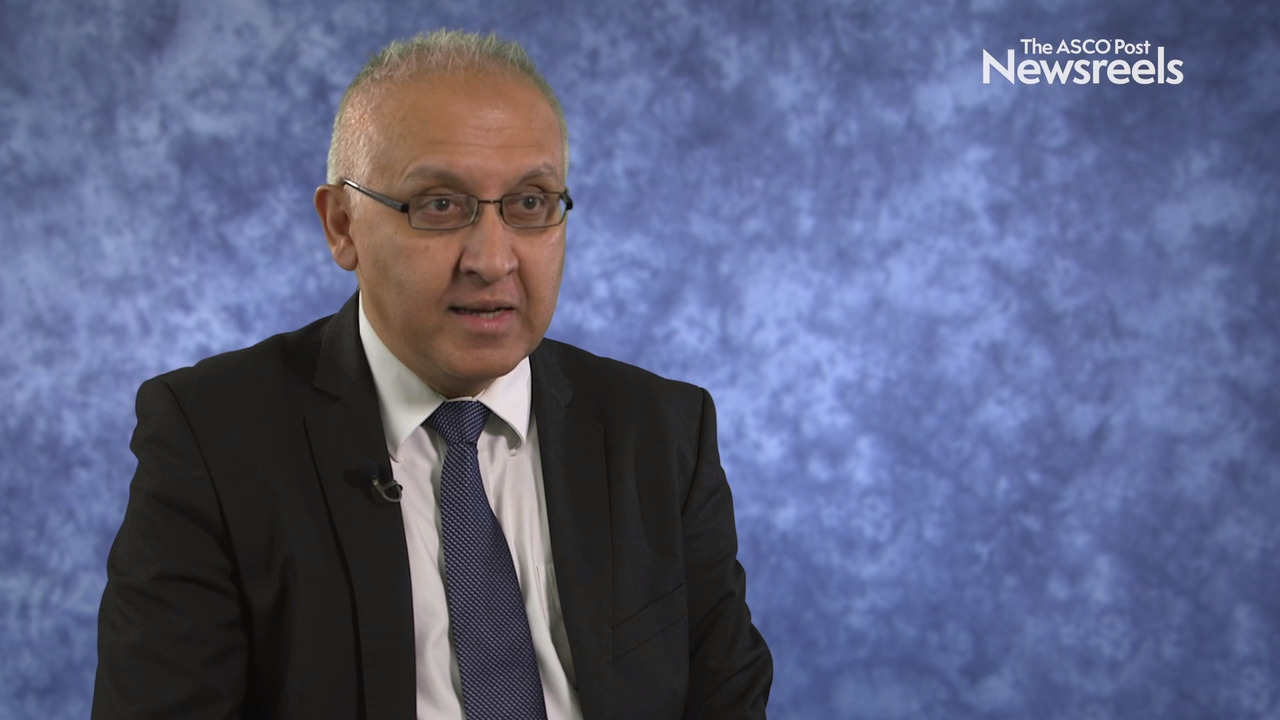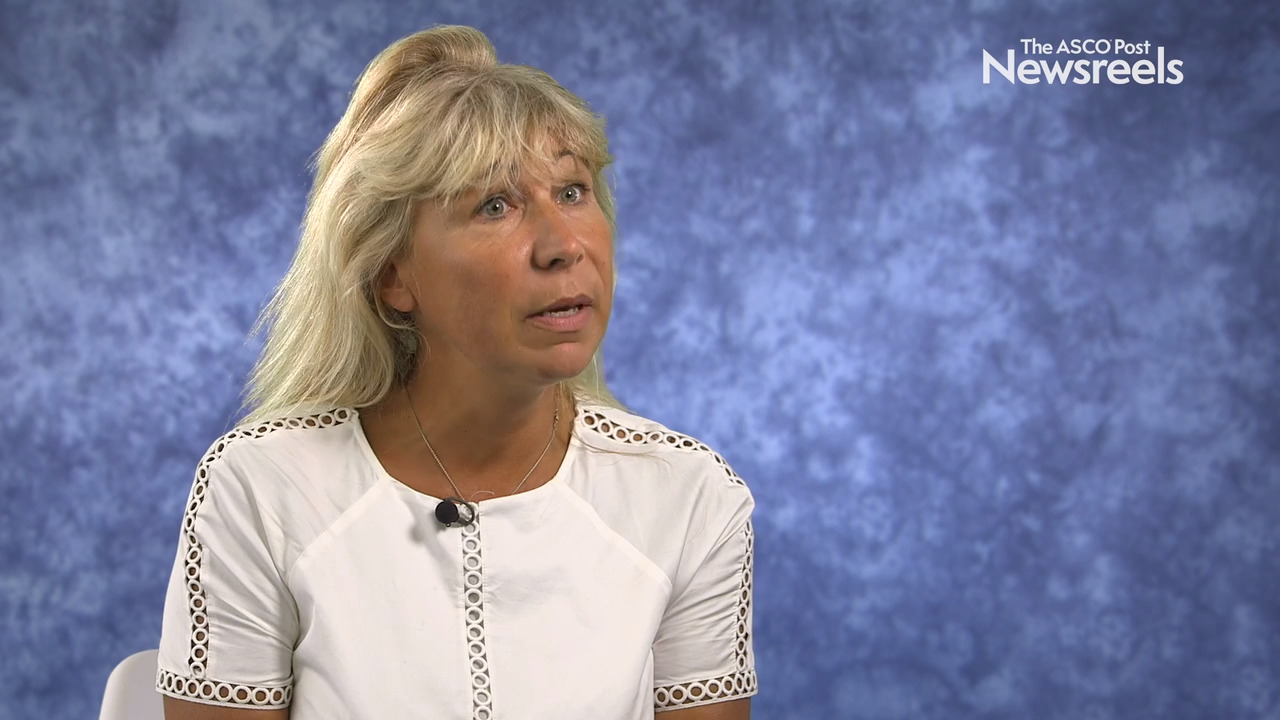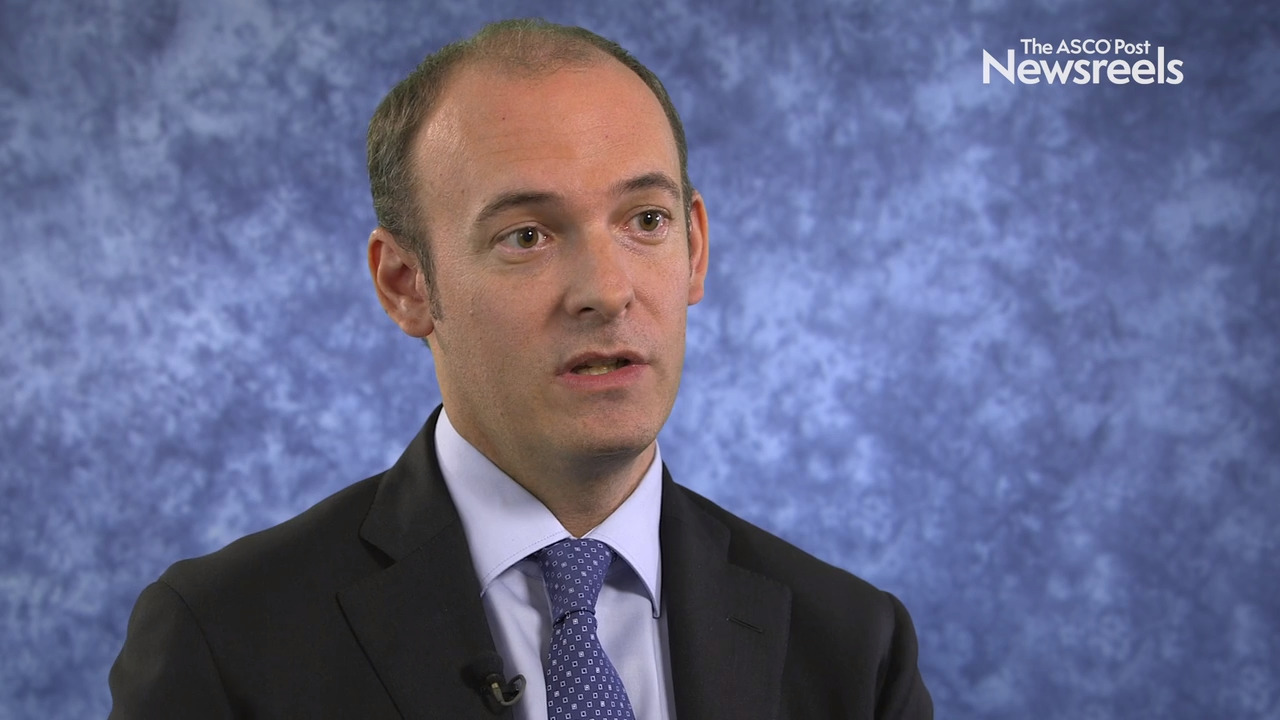Antonio González Martín, MD, PhD, on Ovarian Cancer: PRIMA/ENGOT-OV26/GOG-3012 Trial of Niraparib
ESMO 2019 Congress
Antonio González Martín, MD, PhD, of the Clínica Universidad de Navarra, discusses study findings showing niraparib therapy significantly improved progression-free survival in patients with advanced ovarian cancer across biomarker subgroups (Abstract LBA1).
Sungjune Kim, MD, PhD, of the H. Lee Moffitt Cancer Center and Research Institute, discusses phase II study findings on the safety and tolerability of nivolumab/ipilimumab plus stereotactic body radiation therapy (Abstract 1321P).
The ASCO Post Staff
Nicholas D. James, PhD, MBBS, of University Hospitals Birmingham NHS Trust, discusses results from a long-term follow-up of a cohort treated with docetaxel in the STAMPEDE randomized trial, confirming that the treatment showed benefit in patients with both high- and low-volume disease (Abstract 844O).
Mansoor R. Mirza, MD, of Copenhagen University Hospital, offers his perspective on three studies presented in the Presidential Symposium: the PRIMA/ENGOT-OV26/ GOG-3012 trial (niraparib for newly diagnosed advanced disease); the PAOLA-1/ENGOT-ov25 trial (olaparib plus bevacizumab maintenance therapy in newly diagnosed advanced disease); and the VELIA/COG-3005 study (integrating veliparib with front-line chemotherapy and maintenance therapy) (Abstracts LBA 1–4).
Isabelle Ray-Coquard, MD, PhD, on Ovarian Cancer: Olaparib Plus Bevacizumab
Isabelle Laure Ray-Coquard, MD, PhD, of the Centre Leon Bérard, discusses phase III study findings in patients with newly diagnosed, advanced ovarian cancer who received olaparib plus first-line bevacizumab maintenance treatment. Compared with placebo plus bevacizumab, olaparib improved progression-free survival, with the greatest benefit in women with BRCA mutations and positive homologous recombination deficiency status (Abstract LBA2).
Aleix Prat, MD, PhD, of Hospital Clinic de Barcelona, discusses the findings of a meta-analysis showing that the HER2-E subtype may predict pathologic complete response beyond hormone receptor status in HER2-positive early breast cancer (Abstract 248P).





